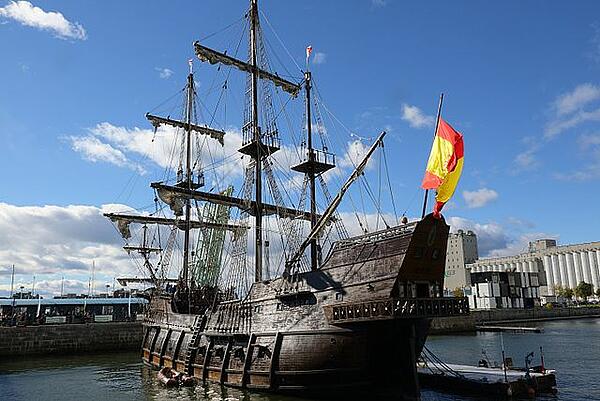The Galleon Trade
When the Spanish arrived in the Philippines, the locals had already established a basic trade network with a number of major nations, including China, Japa, India and Cambodia. When the Spanish colonists established their own government, this trade continued and Manila was soon nominated as the centre of commerce for the archipelago.
However, the Spaniards decided to close the ports of Manila to all countries except Mexico, creating the Manila-Acapulco Trade - or the Galleon Trade. The trade was a Spanish government monopoly, with only two galleons being used. The first would travel to Manila with 500,000 pesos worth of goods on a journey that took 120 days at sea. Meanwhile, the second galleon would travel to Acapulco with around 250,000 pesos worth of goods on a journey that took 90 days at sea.

While this trade was limiting, it did encourage the spread of liberal ideas in the Philippines, further progressing the Spanish cause. One of these ideas was the introduction of reforms by Governor General Jose Basco y Vargas, who eventually tried to release the Philippines from its dependence on Mexican trade. This was attempted via the introduction of a “general economic plan”, which included the establishing of the Economic Society of Friends of the Country. This provided local farmers with incentives for planting lucrative crops such as cotton, spices and sugarcane, while miners would encouraged to seek gold, silver, tin and copper.
Eventually, these reforms led to the boosting of the tobacco industry, with Basco claiming a monopoly over the industry in 1781 across the islands. In a number of regions, including the Cagayan Valley and Ilocos Norte, farmers were prohibited from planting anything other than tobacco (selling it to the government at a price dictated by the authorities), while no other province was allowed to plant any at all.
While the tobacco trade did lead to a number of restrictions being imposed on farmers, it also successfully released the Philippines from the Galleon Trade, and increased revenues for the government thanks to the subsequent fame of Filipino tobacco all over the world.
MLA Citation/Reference
"The Galleon Trade". HistoryLearning.com. 2026. Web.
